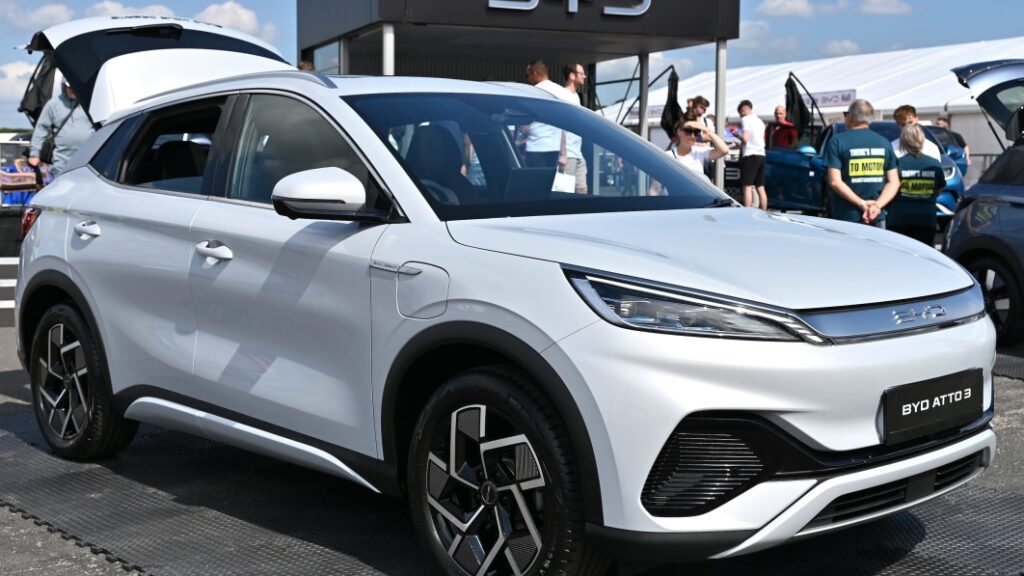Chinese EV subsidies will be investigated by EU over concerns they're distorting the market with cheaper prices

BYD’s Atto 3.
John Keeble/Getty Images
The European Commission president has announced an “anti-subsidy investigation” into Chinese EVs.
Ursula von der Leyen said the EU’s market was being distorted by “huge state subsidies.”
BYD’s Atto 3 became Sweden’s bestselling EV in July, per Bloomberg.
The EU is launching an “anti-subsidy investigation” into Chinese electric vehicles, Ursula von der Leyen announced Wednesday.
In her State of the Union speech, the European Commission president said the bloc’s market was being distorted because the price of Chinese EVs is “kept artificially low by huge state subsidies.”
“And as we do not accept this from the inside, we do not accept this from the outside,” Von der Leyen added.
The investigation could mean the EU would impose tariffs to make the vehicles more expensive in the bloc — aiming to negate the Chinese government’s financial support of its country’s EV companies.
Reuters reported that China’s car exports increased 31% in August, following a 63% surge in July. The news agency also reported that 8% of new EVs sold in Europe this year were from Chinese brands, up from 4% in 2021.
Chinese EV makers haven’t yet brought their cars to the US, but they have become increasingly popular on the other side of the Atlantic.
For example, BYD’s Atto 3 became Sweden’s bestselling EV in July, Bloomberg reported. That came after BYD dethroned Volkswagen to become the top-selling car manufacturer at home in China. It’s also the world’s second-biggest maker of EVs after Tesla, The Guardian reported.
The Atto 3 retails for around $48,000 in Germany. Forbes reported that price was more than $10,000 cheaper than competitors with similar performance.
“Europe is open for competition. Not for a race to the bottom,” Von der Leyen said. “We must defend ourselves against unfair practices.”



